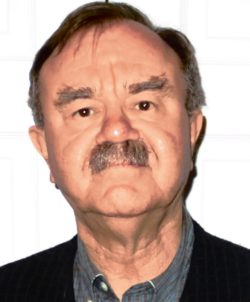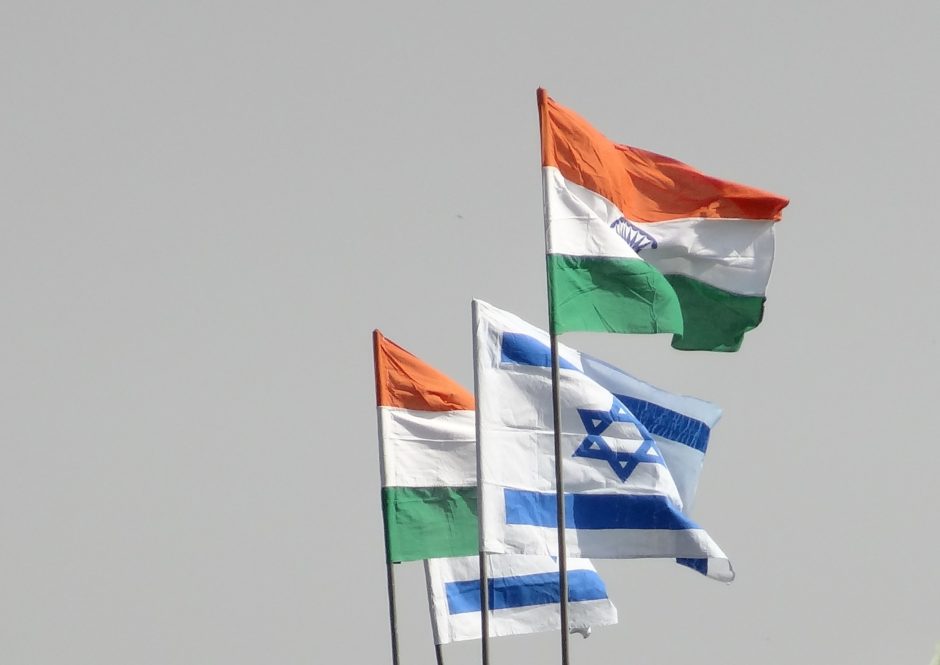The Israeli-American relationship, already under strain during the Obama presidency, enters a new period of uncertainty with the election of Donald Trump. Jerusalem’s ties with Europe have also deteriorated.
As a consequence, Israel seeks closer bonds with other major powers. One of these is India.
Twenty-first century geopolitics are bringing Israel and India closer together. The force driving this is Islamism, from which both these democracies are under attack.
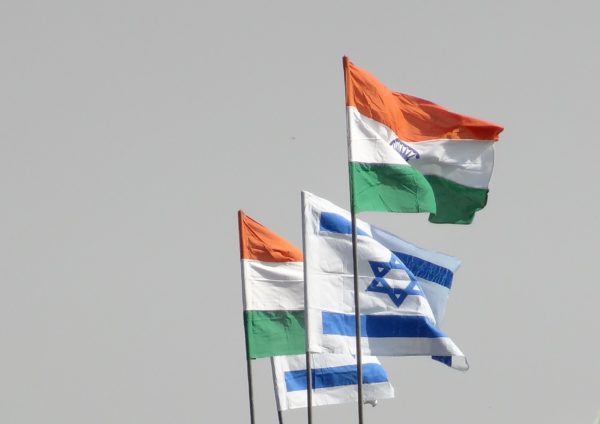
As well, India faces a hostile nuclear-armed state, Pakistan, next door, which it accuses of supporting jihadis and fomenting violence in Muslim-majority Kashmir, while Israel is concerned that its main adversary, Iran, may be in the process of acquiring a nuclear capability.
As a reaction to these external threats, the secular political left, once led, respectively, by the Congress Party in India and the Labor Party in Israel, has been displaced in government by the hard-line nationalists in the Bharatiya Janata Party (BJP) and Likud.
India formally established full diplomatic relations with Israel in January 1992, but under the leadership of Prime Minister Narendra Modi, in office since 2014, ties between the two nations have greatly expanded. His election elicited an enthusiastic response from Israeli Prime Minister Benjamin Netanyahu.
India has begun denouncing Palestinian suicide bombings and other terrorist acts in Israel, and is no longer initiating anti-Israel resolutions at the United Nations.
In 2015 it abstained from voting on the UN Human Rights Council’s condemnation of Israel’s actions during its conflict with Hamas in Gaza a year earlier. By contrast, all the European countries on the council voted in favor. It was the first time in decades that India abstained from a decision against Israel in an international forum.
After all, India’s historically pro-Arab stance in the Middle East has not been adequately reciprocated and rewarded by the Arab world. It has received no backing from Arab countries in the resolution of problems it faces in Kashmir. On the contrary, Arab nations have firmly stood by Pakistan.
“The qualitative change in the relationship is palpable in every single sphere, and that is important to note,” according to Mark Sofer, a deputy director-general in the Israeli Foreign Ministry and former ambassador to India.
This flourishing friendship, which includes major cooperation in the area of defence, was highlighted with the visit to India in mid-November by Israeli President Reuven Rivlin, to mark a quarter-century of diplomatic relations.
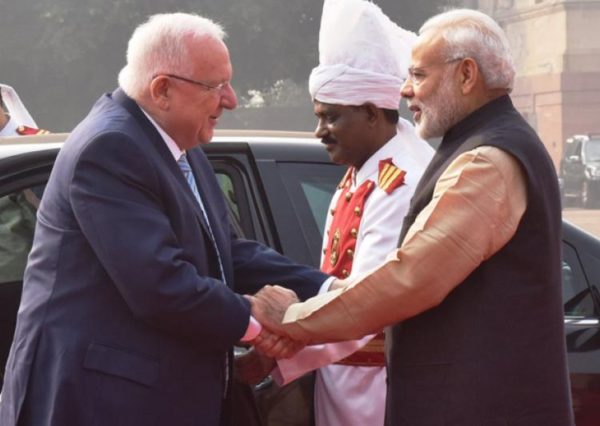
“We noted the strength of our growing defence partnership and agreed on the need to make it more broad-based through production and manufacturing partnerships,” Prime Minister Modi said at a joint press conference in New Delhi. “Our people are constantly threatened by forces of terrorism and extremism. We recognize that terrorism is a global challenge, knows no boundaries and has extensive links with other forms of organized crime.”
When the Soviet Union collapsed, India found itself with outdated military hardware and equipment that were unsuitable for combat. At the same time, the Israeli defence industry was developing electronic upgrades to improve the capabilities and extend the life cycle of military platforms such as planes, ships, and tanks.
So India has now become Israeli defence companies’ largest customer. Israel Aerospace Industries and the Indian state-owned Defence Research and Development Organization began collaborating on a jointly developed surface-to-air missile system for the Indian Army in 2015.
Indian officials purchased 321 launchers and 8,356 missiles from the Israeli military in 2015. India uses Israel-made unmanned drones for surveillance and military purposes, and ordered 16 of them during 2015.
India is installing Israeli radar technology in the volatile Kashmir Valley as part of operations to stop terrorists infiltrating from Pakistan. This will considerably improve intelligence, surveillance, and reconnaissance of the difficult terrain.
But the commercial ties between the two nations also include water treatment, telecom products, optics, metals, aviation, agriculture, diamonds, chemicals and medical equipment. India is Israel’s third largest trading partner in Asia, just after China and Hong Kong.
Bilateral non-defence trade stands at about $5 billion. Shraga Brosh, the president of the Manufacturers Association of Israel, has said that he and his Indian counterpart have agreed to work “to triple trade and cooperation between our two countries in the coming years.”
Modi listed the multi-dimensional and wide-ranging list of engagements between India and Israel, including enhancing agricultural productivity and efficiency, boosting research and innovation linkages, employing applications of science and technology for the benefit of both societies, forging strong trade links and investment ties, enhancing people-to-people ties through greater cultural and tourism linkages, and promoting educational exchanges.
In a speech before the Israel-India Innovation Partnership in New Delhi, Rivlin told listeners that “India is a top trading partner for Israel today. Together, we have built a powerful and strong market. And together we must work to make this market even stronger. I express here today an official Israeli hope that this visit to India will open the way to a full free trade agreement between our countries.”
Rivlin’s assertion could provide fresh momentum to the conclusion of the agreement, which has remained elusive despite negotiations having begun more than six years ago.
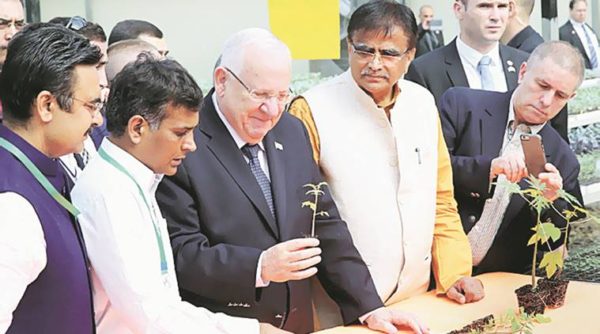
During Rivlin’s stay in India, the two countries signed cooperation agreements and memoranda of understanding in agriculture and the management of water resources.
He suggested that India could learn from Israeli experience in the fields of agriculture, water saving and water cleaning techniques and “greatly benefit” from it. Rivlin observed that there are already programs that bring thousands of Indian farmers to Israel, and that expanding these initiatives would greatly improve their quality of life.
The president visited the Centre of Excellence for Vegetables in Gharaunda, a city in the state of Haryana, where he was given information about seed production through joint Indo-Israel technology.
Haryana agriculture minister Om Prakash Dhankar, who was accompanying Rivlin, expressed his gratitude to Israel for cooperation in establishing various centres of excellence in the field of horticulture.
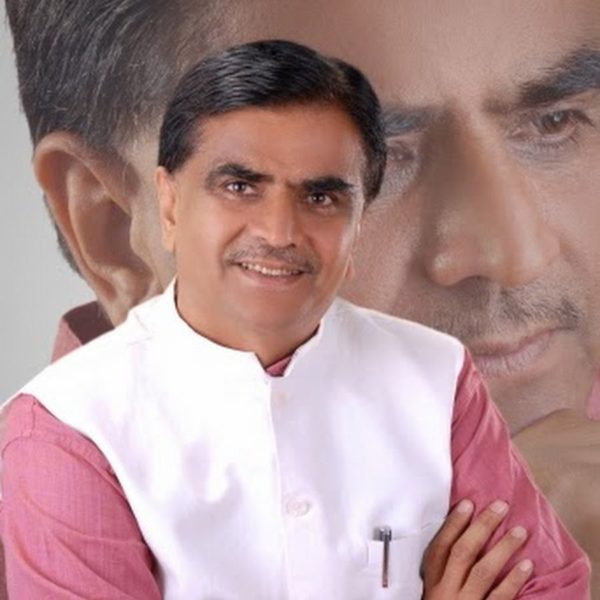
Israel also signed more than 20 education collaboration agreements with India and its institutions of higher learning. “Ten percent of all foreign students and scholars in Israel today are from India, and 40 joint research projects were supported by both governments,” Rivlin said. “I truly believe that the academic cooperation between India and Israel is a top priority for both nations, both people.”
Hindu-majority India has no history of antisemitism, and the country is a favorite destination for Israeli tourists, especially young Israelis following the completion of their army service.
Rivlin noted that the two nations each fought the British Empire for the right to be a free and independent state. “Both India and Israel were liberated from British rule, becoming strong and stable democratic states.”
The Israeli president laid a wreath at the tomb of Mahatma Gandhi in Delhi, and visited the sites of the November 2008 Mumbai terror attacks by Pakistani-based Islamists, which killed 195 people, including nine Israelis.
Modi paid tribute to India’s Jewish community, calling it “a thriving link” and “vital part” of the country’s cultural mosaic. “We are proud of the Jewish community in India.”
An anticipated visit by Modi to Israel next year would demonstrate that a new era of Indian-Israeli relations has truly begun.
Henry Srebrnik is a professor of political science at the University of Prince Edward Island.
